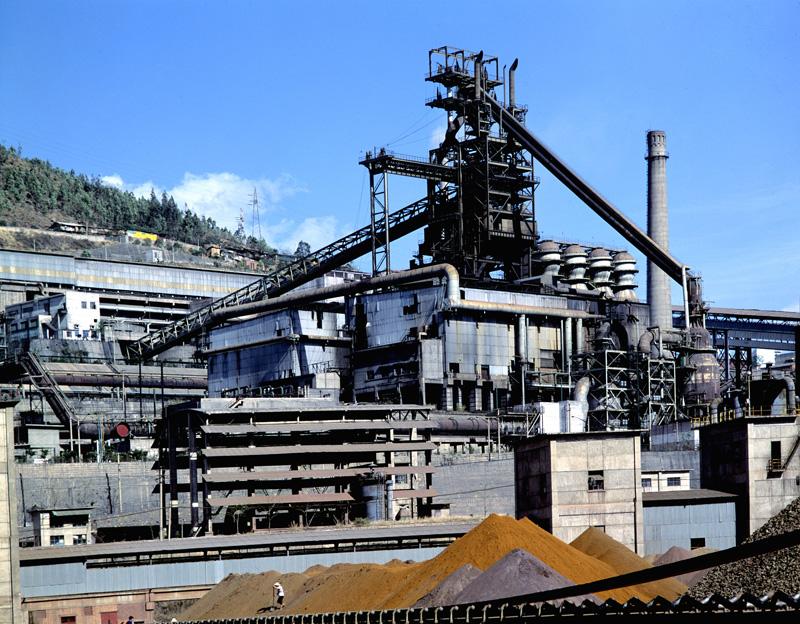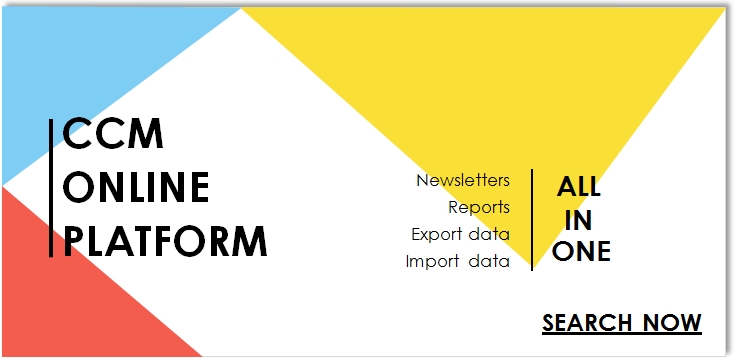The strategic metal of titanium has been
widely applied in various fields due to its profound performance of
thermostability, low temperature resistance, anti-corrosion, low density, and
biocompatibility. China’s capacity of titanium ingot amounted to 109,000 tonnes
in 2013, which was a little bit higher than that of 2012 (105,800 tonnes).
China, which turned to an absolute power in terms of world titanium industry,
had already established a thorough system with a set of procedures including
exploiting, refining, processing, applying, and researching for the industry.

Present
Situation and Tendency of Development of China’s Titanium Industry
1.
Significant Resource Advantages
With the development of economic
globalization, the titanium industry embraced the peak of its development and
began to transfer from rough handling to fine processing. The titanium has a
widespread distribution among more than 30 nations all around the world. With
the current smelting technique and methods, the titanium resources with
industrial value were ilmenite (rock ore and placer) and natural rutile, among
which ilmenite accounted for the majority. Across the globe, Austria, South
Africa, Canada, China, and India were the major exporters of the titanium;
while China, with about one thirds of the global titanium reserves (mainly
distributed in the areas of southeast provinces and south Fujian Province of
China), enjoyed significant titanium resource advantages.
2.
Being a Major Producer of Titanium Sponge
Despite the rapid development of titanium
industry in China, the industry of the country is still in lack of the
competitiveness compared with the international titanium industry. In 2013, the
exporting titanium sponge of China, with 0.34% of decrease YoY, amounted to 81,171
tonnes and taken up 37.8% of the world’s total.
3. Market
Demand on Titanium has been in Uptrend
The profound characteristic of prolonging
equipment life for several times provides the development of titanium industry
with huge potential. The domestic and overseas demands on titanium took a great
leap forward. The strong demand not only derived from the traditional
industries of metallurgy, chemical engineering, electricity, and salt
manufacturing, but also came from the increasing usage of the titanium on the
fields of aerospace, sports and entertainments, and daily essentials;
furthermore, the fast development of new energy industry also provides new
energy materials of vanadium-titanium with emerging market.

Characteristics
of Development of China’s Titanium Industry — Take the Titanium Industry of Baoji as an Example
Titanium industry enjoyed a quite rapid
growth in China, among which the Baoti Group and Zunyi Titanium were equipped
with a thorough system consisting of a set of procedures including exploiting,
refining, processing, applying, and researching for the industry. Baoti, as the
core of China’s titanium industry, has established a titanium industrial system
with the most systematic processing units and the highest professional level.
1.
Tendency towards Industrial Clustering
Driven by the Baoti Group and backed on
Baoji National New High Tech Industries Development Zone, Baoji-China Titanium
Valley was listed as one of the national key industrial clustering zones by the
Ministry of Science and Technology on June 2007. The output value of titanium
industry in Baoji was around RMB20 billion, accounted for three fourths of the
domestic gross value. There are about 1,000 domestic manufacturing and
processing enterprises of titanium, among which more than 400 situated in
Baoji. And in Baoji, the enterprises of deep-processing of titanium were more
than 200, the others were for trading and rough processing. With the industry
scale of titanium ranked No.1 across the country, the industry has absolutely
been the dominant industry in Baoji and played an important role in
accelerating the economic development of the region.
2.
Developing Industry Chain of Titanium Step by Step
Baoti Group, with a thorough titanium
industrial system, has launched a series of products in regard to wrought
titanium, titanium alloys, titanium and titanium alloy powder, and titanium
equipment, among which the new materials research on titanium alloy materials,
Ti-Ni memory material, and superconducting materials, has been in the advanced
level in China. The enterprise has also made effort on expanding the field of
new materials through developing, processing, and producing the titanium
material.
Analyzing
the Problems of China’s Titanium Industry from the Perspective of Industrial
Organization
Although the international competitiveness
of China’s titanium sponge has been all the way improving, China has not been a
dominant power in terms of titanium yet. There are various problems on the
industrial layout, products structure, and technique innovation.
1.
Small Enterprise Scale, Low Market Concentration
With the development of economic globalization,
there formed some titanium tycoons with global resource allocation
optimization, huge production scale, and stronger competitiveness of products
in the titanium industry. Compared with those large-scale enterprises, such as
Precision Castparts Co (PCC) of the US and VSMPO-AVISMA of Russia (with the
annual output of 28,855 tons in 2013, accounted for 14% of world total output),
the level of concentration of the titanium industry of China was very low and
the scale of enterprises was too small, and thus resulted in the unreasonable
resource allocation and inefficient competitiveness.
1.
Producer of Low-end Product, with Needs to Largely Import High-Value-Added
Product from Abroad
On one hand, with the small profit space,
the products of the middle and low level of domestic titanium enterprises faced
huge overcapacity; on the other hand, the production of the high-value-added
and highly sophisticated products were insufficient and therefore large import
is necessary to guarantee the domestic supply. The techniques in the fields of
thick plate (above 50mm), sheet(below 0.5 mm), welded pipe, long pipe,
large-size bar, titanium strip, section bar, and waste titanium retrieve
apparently fallen behind the advanced level of the industry.
3. Lake of Competitiveness
Although currently China has already been
in the leading position in terms of the titanium production, the domestic
titanium enterprises still lack of international competitiveness, very few of
which enable to achieve the average annual capacity of more than 10,000 tonnes.
Generally speaking, there is a huge gap between the domestic enterprises of
China and the international titanium tycoons in terms of the profit,
technology, and quality of the products. When it comes to the domestic
enterprises, there are various problems including the unreasonable product
structure, low utilization ratio of the resource, lack of the technology
innovation, and yet-to-be-improved labor productivity.
4. Analyzing the Problems of China’s Titanium Industry from the Perspective of
Industrial Concentration
First of all, the low industrial
concentration intensified the competitions between enterprises, which would
lower the investment of technological innovation and development and against
the implement of economies of scale, and thus caused the small size of the
majority of the enterprises, low labor productivity, high average cost, and low
profit margin. Secondly, due to the low concentration and small-size
enterprises, the products were generally lack of competitiveness with
unreasonable product structure and low market value. Thirdly, the low
concentration weakened the negotiation ability for the titanium industry as a
buyer in purchasing the required raw materials and energy sources, and thus
intensified the situation of rising raw material costs under the
resource-challenged circumstance.
For more information about Titanium in China, you could search in CCM's Online Platform!

About CCM:
CCM is the leading market intelligence provider for China’s
agriculture, chemicals, food & ingredients and life science markets. Founded in 2001, CCM offers a
range of data and content solutions, from price and trade data to industry
newsletters and customized market research reports. Our clients include Monsanto,
DuPont, Shell, Bayer, and Syngenta. CCM is a brand of Kcomber Inc.
For more information about
CCM, please visit www.cnchemicals.com or get in touch with us
directly by emailing econtact@cnchemicals.com or calling
+86-20-37616606.